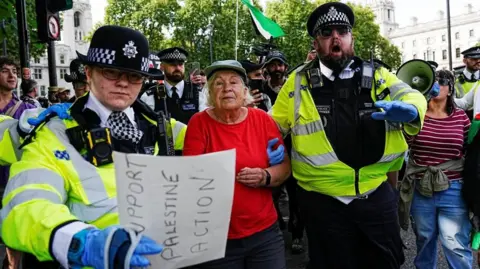The world of cinema has lost one of its greatest legends as Hollywood icon Robert Redford passes away at 89. Known for his piercing blue eyes, unmatched charisma, and ability to embody complex characters with both vulnerability and strength, Redford leaves behind a legacy that stretches across six decades of film, theater, activism, and cultural influence.
- Early Life and Humble Beginnings
- Rise to Stardom
- A Career Beyond Acting
- Personal Life and Activism
- Awards, Honors, and Recognition
- The Legacy of Robert Redford
- Tributes from Around the World
- Robert Redford’s Cultural Influence
- FAQs
- What was Robert Redford’s most famous role?
- Did Robert Redford win an Academy Award?
- What is the Sundance Film Festival’s significance?
- Was Robert Redford involved in activism?
- How will Robert Redford be remembered?
- Conclusion
His passing marks the end of an era for Hollywood, yet his impact will continue to reverberate through generations of actors, filmmakers, and audiences who found meaning in his artistry.
Redford was more than just an actor; he was a visionary who redefined the boundaries of American cinema. From his breakout role in “Butch Cassidy and the Sundance Kid” to his work as a director and founder of the Sundance Institute, he shaped not only the films we watch but the way independent stories are told on screen. As tributes pour in from around the world, it becomes clear that Redford was not only a star but also a symbol of authenticity in a rapidly changing entertainment industry.
Early Life and Humble Beginnings
Robert Redford was born Charles Robert Redford Jr. on August 18, 1936, in Santa Monica, California. Raised in a working-class family, he faced early struggles that gave him a grounded perspective on life. His father was a milkman, and his upbringing instilled in him the value of hard work and perseverance. Unlike many Hollywood stars born into privilege, Redford carved his own path, working odd jobs and relying on his artistic ambitions to guide his future.
After a brief stint at the University of Colorado, where he attended on a baseball scholarship, Redford’s journey took a detour when he lost the scholarship due to struggles with alcohol. This difficult period proved pivotal, as he later traveled to Europe, immersing himself in art and culture, which broadened his perspective and laid the groundwork for his career in acting and storytelling.
Rise to Stardom
Redford’s career began on stage, where he showcased his talent in Broadway productions before transitioning to television and film. His big break came in 1969 when he starred alongside Paul Newman in “Butch Cassidy and the Sundance Kid.” The film’s success turned him into a household name, and his portrayal of the charming outlaw Sundance Kid cemented his place among Hollywood’s elite.
The 1970s were Redford’s golden years, as he became one of the most bankable stars in the world. Films such as “The Sting,” “All the President’s Men,” and “The Great Gatsby” showcased his versatility, blending style, depth, and intellect in performances that resonated with both critics and audiences. By the end of the decade, Redford was not only one of the most recognizable faces in Hollywood but also one of the highest-grossing actors.
A Career Beyond Acting
Redford’s contributions extended far beyond acting. In 1980, he directed “Ordinary People,” a family drama that earned four Academy Awards, including Best Picture and Best Director. His debut as a director stunned Hollywood and proved that his artistry was not confined to the screen but also flourished behind the camera.
In 1981, Redford founded the Sundance Institute, which would become one of the most influential forces in independent cinema. The annual Sundance Film Festival, held in Utah, gave emerging filmmakers a platform to showcase their work, fostering careers for directors such as Quentin Tarantino, Steven Soderbergh, and Ava DuVernay. This initiative forever altered the trajectory of independent film, ensuring that smaller, innovative stories would find audiences worldwide.
Personal Life and Activism
Robert Redford’s personal life was as rich and complex as his professional one. He married historian Lola Van Wagenen in 1958, and together they had four children. Despite tragedies, including the death of their infant son, Redford remained deeply committed to family and often credited them as his greatest source of strength.
Beyond his family, Redford was a passionate environmentalist and political activist. He used his fame to draw attention to climate change, conservation, and social justice issues. His advocacy earned him awards and recognition from organizations such as the National Audubon Society and the Natural Resources Defense Council. Redford consistently emphasized that fame should be used as a tool for positive change rather than personal gain.
Awards, Honors, and Recognition
Over his illustrious career, Robert Redford collected numerous accolades. He received two Academy Awards, an Honorary Oscar for his contributions to the film industry, and a Presidential Medal of Freedom awarded by President Barack Obama in 2016. Redford’s influence also earned him recognition at film festivals worldwide, cementing his place as a global cultural figure.
By the end of his career, Redford had starred in more than 50 films, directed a handful of critically acclaimed projects, and produced countless others. His ability to balance commercial success with artistic integrity remains unmatched in modern cinema.
The Legacy of Robert Redford
Robert Redford’s legacy is multifaceted. As an actor, he epitomized the golden era of Hollywood, blending classic good looks with thought-provoking performances. As a director, he challenged audiences with stories about family, morality, and human vulnerability. And as the founder of Sundance, he empowered independent voices that might otherwise have gone unheard.
His passing marks a monumental loss, but it also invites reflection on the ways in which Redford changed Hollywood forever. Today, the landscape of film is richer and more diverse because of his vision and commitment to authenticity.
Tributes from Around the World
Following the announcement of Robert Redford’s passing, tributes flooded in from actors, directors, politicians, and fans alike. Fellow actor and longtime friend Paul Newman once called Redford “the best partner anyone could ask for on screen,” while Martin Scorsese hailed him as “a giant of American film whose influence will endure.” Younger actors also recognized his impact, with many crediting Sundance for giving them their first major opportunities in the industry.
On social media, fans shared their favorite Redford performances, from the romantic drama “Out of Africa” to the political thriller “Three Days of the Condor.” The recurring theme in these tributes is gratitude for a man who embodied elegance, humility, and artistry at every stage of his life.
Robert Redford’s Cultural Influence
Redford’s influence went beyond film and touched broader cultural conversations. His advocacy for independent voices shaped the direction of modern storytelling, where diversity of perspective and innovation in filmmaking are now celebrated. Furthermore, his commitment to environmentalism foreshadowed the urgency with which celebrities and influencers now use their platforms to highlight global challenges.
His career reflected a rare balance between stardom and substance, proving that an actor could both captivate the box office and advance meaningful cultural dialogue.
FAQs
What was Robert Redford’s most famous role?
Robert Redford’s most iconic role was arguably as the Sundance Kid in “Butch Cassidy and the Sundance Kid,” where he starred alongside Paul Newman. The role not only gave him international fame but also inspired the name of his Sundance Institute and Film Festival.
Did Robert Redford win an Academy Award?
Yes, Redford won two Academy Awards. He earned the Oscar for Best Director for “Ordinary People” in 1980 and received an Honorary Oscar in 2002 for his contributions to the film industry, particularly through his support of independent cinema.
What is the Sundance Film Festival’s significance?
The Sundance Film Festival, founded by Redford in 1981, has become one of the most prestigious platforms for independent films. It launched the careers of many notable filmmakers and remains a hub for innovative and diverse storytelling.
Was Robert Redford involved in activism?
Yes, Redford was a lifelong activist, particularly in environmental and social causes. He worked with organizations to promote climate change awareness and conservation efforts, often using his fame to spotlight urgent issues.
How will Robert Redford be remembered?
Robert Redford will be remembered as a Hollywood legend, visionary director, cultural advocate, and activist. His contributions to cinema, his founding of Sundance, and his dedication to social causes ensure that his influence will live on for generations.
Conclusion
Hollywood icon Robert Redford passes away at 89, leaving behind an extraordinary legacy that transcends the silver screen. His journey from humble beginnings in California to becoming one of the most celebrated actors, directors, and activists in the world reflects a life of passion, resilience, and vision. Redford was not only a storyteller but also a champion for authenticity, independent voices, and the environment.
As the world mourns his passing, his body of work remains a gift that will continue to inspire. From “The Sting” to Sundance, from his activism to his artistry, Robert Redford’s life reminds us that greatness lies not just in fame but in the ability to use influence for good. His story is not just one of Hollywood triumph but of human depth and cultural transformation—a true legend whose light will never fade.















